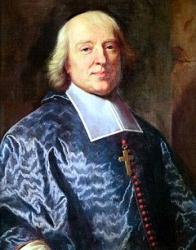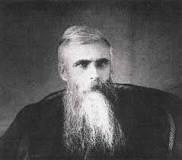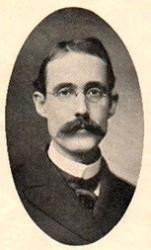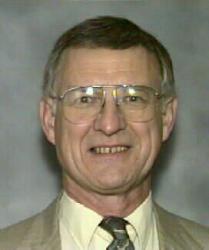Planning worship?
Check out our sister site, ZeteoSearch.org,
for 20+ additional resources related to your search.
- |
User Links
Person Results
St. Anatolius. of Constantinople

? - 458 Person Name: Anatolius Author of "The day is past, the shadows round are falling" in At Worship Anatolius, one of the Greek hymn-writers. No details are known of him. From the fact that he celebrates martyrs who died in the 6th and early part of the 7th century, it is certain that he is not to be identified (as by Neale) with the patriarch who succeeded Flavian in 449, and afterward procured the enactment of the famous canon of the Council of Chalcedon, which raised Constantinople to the second place among the patriarchal sees (Dict. of Ch. Biog., i. p. 110). A letter is said to exist showing that he was a pupil of Theodore of the Studium (759-826). More than a hundred hymns, all of them short ones, are found in the Mensea and Octoechus. From this account, derived from Anth. Graec. Garm. Christ, p. xli, it will be seen that his poems cannot be considered "the spring-promise" of the age of the Canons (Neale). A few of his hymns have been translated by Dr. Neale in his Hymns of the Early Church, and Dr. Littledale, in the Offices of the Hymns of the Early Church: ("Fierce was the wild billow") and ("The day is past and over").
[Rev. H. Leigh Bennet, M.A.]
-- John Julian, Dictionary of Hymnology (1907)
St. Anatolius. of Constantinople
Jacques Bridaine

1701 - 1767 Person Name: Jacques Bridaine, 1701-1767 Author of "My Lord, my Master, at Thy feet adoring" in The Hymnary of the United Church of Canada Jacques Bridaine (21 March 1701 in Chusclan – 22 December 1767 in Roquemaure) was a French Roman Catholic preacher.
Having completed his studies at the Jesuit college of Avignon he entered the Sulpician Seminary of the Royal Missions of St. Charles of the Cross. Soon after his ordination to the priesthood in 1725, he joined the Missions Royales, organized to bring back to the Catholíc faith the Protestants of France. For over forty years he visited as a missionary preacher almost every town of central and southern France. When only in minor orders, he was assigned as Lenten preacher in the Church of Aigues-Mortes.
It was at Aigues-Mortes where his extreme youth provoked the derision of the people and when Ash Wednesday arrived, the church was empty. Undismayed, he put on his surplice and went out in the principal streets, ringing a bell, and inviting the people to hear him. He succeeded in filling the church with congregants who came out of curiosity but when he began in a most unusual fashion by singing a canticle about death the congregation burst out in loud laughter; whereupon he denounced the congregation. He was characteristically sensational. He wrote little and gave way to the inspiration of the moment and as a consequence his utterances at times were an incoherent jumble of incongruous figures and ideas, which clashed with each other and were often even grotesque.
It was Cardinal Maury who called attention to his exordium in the sermon on Eternity which was said to be improvised. Father Cahour, S.J., inserted it in his Chefs-d'Oeuvre d'éloquence, and Maury who wrote it from memory declared that it was worthy of Bossuet or Demosthenes. It was proclaimed at St. Sulpice before an audience of dignitaries. Nevertheless, Bridaine denounced the assembly as sinners, and bade them to tremble before him, "Today I hold your condemnation in my hand." Opinions were divided about the oratory; some finding a self-consciousness in it which was unapostolic.
He was renowned for having a sonorous and penetrating voice that could easily be heard by an audience of ten thousand people. He tended towards great theatrics to engage his audience. A supreme instance of these "methods" as he called them, and which he always insisted upon being carried out, is narrated by Madame Necker in the Nouveaux Mélanges (I, 138). He had just delivered a stirring discourse when addressing himself to the great procession which had followed him he said: "I am now going to bring you home" and he led them to the grave-yard.
In the course of his life he preached two hundred and fifty-six missions, traveling to almost every town of France in the performance of his work. Pope Benedict XIV gave him permission to preach anywhere in Christendom. Medals were struck in his honor, and the most distinguished prelates showed him the greatest reverence and affection. His Cantiques Spirituels passed through forty-seven editions, in use in most French churches. He has also left five volumes of sermons (ed. Avignon, 1823; Paris, 1861). The Protestants of France are said to have been particularly friendly to him, because of the many good offices he performed in their regard. For fourteen years he followed the spiritual guidance of a missionary like himself named Mahistre. In 1742 Cardinal Fleury proposed to establish a missionary congregation for all France under the direction of Bridaine, but the death of the cardinal caused the project to fall through.
In Paris, in 1744, his sermons created a deep impression. France was wild with excitement about him. His appeals were so powerful that in a mission which he preached at Chalon-sur-Saône in 1745 there were restitutions to the amount of 100,000 francs. His reputation as an orator was so great that even Massillon was unwilling to preach in his presence. In the course of his missions he established what he called "peace tribunals", courts composed of some of his associate missionaries, a number of irreproachable laymen, and the parish priest. To these courts all disputes were submitted and the decisions were accepted as final. His life was written by the Abbé Carron. The book was frequently translated into English, the first edition published in 1831.
--en.wikipedia.org/wiki/
Jacques Bridaine
Thomas Lake Harris

1823 - 1906 Author of "O earth, thy past is crowned and consecrated" in Hymns of the Spirit for Use in the Free Churches of America Harris, Thomas Lake, born May 15, 1823. Under his name three hymns are given in the American Unitarian Hymns of the Spirit, 1864:—(1) "In every human mind we see" (The Soul God's Temple); (2) "Look up, O man, behold the same" (God All in All); (3) "O earth, thy past is crowned and consecrated" (Past, Present and Future).
--John Julian, Dictionary of Hymnology, Appendix, Part II (1907)
=====================
Harris, T. L., p. 1569, ii., was born at Stony Stratford, Bucks, and when three years of age went with his parents to America. He died at New York, March 23, 1006. His hymns were published as Hymns of Spiritual Devotion, N.Y., 1858. In his Preface, he says, "Many of the hymns were verbally communicated by individual spirits." [Rev. James Mearns, M.A.]
--John Julian, Dictionary of Hymnology, New Supplement (1907)
Thomas Lake Harris
Marion Franklin Ham

1867 - 1956 Author of "Touch thou mine eyes" in Hymns of the Spirit for Use in the Free Churches of America Born: February 18, 1867, Harveysburg, Ohio.
Died: July 23, 1956, Arlington, Massachusetts.
Buried: Mount Auburn Cemetery, Cambridge, Massachusetts.
Ham began his career as a journalist and bank clerk in Chattanooga, Tennessee. Ordained a Unitarian minister in 1898, he pastored in Chattanooga (1898-1904); at the First Church in Dallas, Texas (1904-09); and in Reading (1909-34), Waverly (1934-42), and Gardner, Massachusetts (1943-45). The Meadville Theological School in Chicago, Illinois, awarded him a Doctor of Divinity degree in 1942, the year he retired. Ham’s works include:
The Golden Shuttle, 1896
The Kinchin Stories, 1914
Songs of the Spirit, 1932
Songs of Faith and Hope, 1940
O Mother-Heart, 1941
Keeper of the Flame, 1945
Freedom, 1950
Songs at Sunset, 1951
Songs of a Lifetime, 1953
In a Rose Garden, 1954
www.hymntime.com/tch/
Marion Franklin Ham
Howard Slenk

b. 1931 Harmonizer of "GENEVAN 12" in Psalter Hymnal (Gray) Howard J. Slenk (b. Holland, MI, 1931) received his undergraduate education from Calvin College and his Ph.D. from Ohio State University in Columbus; his dissertation was entitled The Huguenot Psalter in the Low Countries. He taught at Trinity Christian College in Palos Heights, Illinois, and at Calvin College from 1967 until retiring in 1995. From 1970 to 1993 Slenk served as organist and director of music at Woodlawn Christian Reformed Church in Grand Rapids. His published works include A Well-Appointed Church Music (1960) and various articles on Genevan psalmody.
Bert Polman
Howard Slenk
Jacques Feuillie
Person Name: Jacques Feuillie (19??-) Reviser of "DONNE SECOURS" in Common Praise (1998)
Jacques Feuillie
H. Ellis Wooldridge
1845 - 1917 Person Name: H. E. W. Arranger of "[The king, O God, his heart to Thee upraiseth]" in Hymns b. 3/28/1845, Winchester; d. 2/13/17, London; English music scholar
LOC Name Authority File
H. Ellis Wooldridge
Gonzalo Báez Camargo
1899 - 1983 Person Name: Gonzalo Báez-Camargo Translator of "¡Eres del mundo, Cristo, la esperanza!" in Mil Voces para Celebrar
Gonzalo Báez Camargo
Hugh Porter
Person Name: Hugh de Bock Porter, 1870-1940 Author of "Lift Up Your Hearts, Ye People" in Hymns for Youth
Hugh Porter
George MacLaren Brydon
1875 - 1963 Person Name: George MacLaren Brydon, 1875- Author of "O Lord and Savior, as We Kneel Before Thee" in Hymnbook for Christian Worship Clergyman of the Protestant Episcopal Church; native Virginian, born in Danville, June 27, 1875. Received his B.A. degree from Roanoke College in 1896 and a D.D. from the same institution in 1928. A graduate of the Protestant Episcopal Theological Seminary in 1899, he served churches in Virginia, Maryland, and West Virginia.
--The Hymn Society, DNAH Archives
========================
[Brydon] has been active in diocesan organizations, serving as Secretary and Treasurer of the Diocese of Virginia 1919-1940 and as Historiographer since 1924. In the latter capacity, he has written many historical articles. He is the author of a two volume work entitled, "Virginia's Mother Church and the Political Connection under which it Grew."
--Eleven Ecumenical Hymns, 1954. Used by permission.
George MacLaren Brydon


 My Starred Hymns
My Starred Hymns


